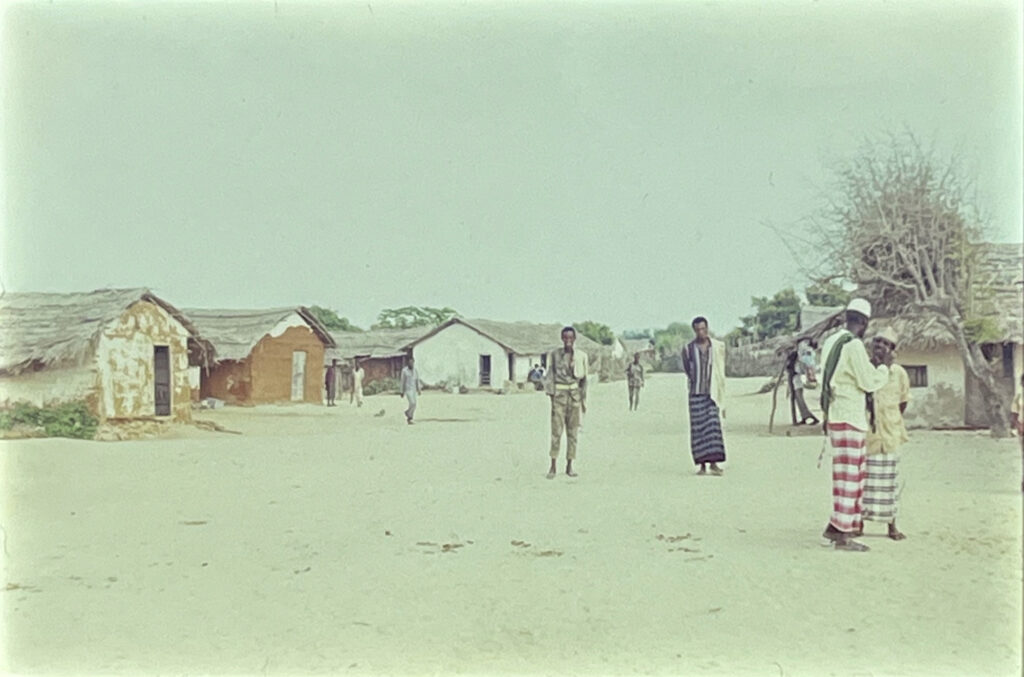That time I spent three days in southern Somalia
30 years ago today I was in Somalia as part of my big trip around the equator.
The equator passes through Somalia just north of Kismayo and I’d had it on good authority that there was a monument that marked the equator close to the village of Jamaame.
Things are still pretty bad in Somalia but back then things were much worse.
The government of Mohamed Siad Barré had just been overthrown and the country had descended into civil war.
In a funny way, that chaos actually helped me get a visa.
The staff at the Somali embassy in Nairobi weren’t getting paid any more and were selling visas just to get by.
For the princely sum of $US15 I got a business visa good for 30 days.

Once I crossed the Kenyan border I had to walk along a dry, dusty track to reach Chiombone, the first town of any size in this part of Somali.
A Nissan hut on the outskirts of town served as the immigration post.
I was greeted by a young guy carrying an AK-47 called Moses. He welcomed me to Somalia and wrote my details into a battered exercise book.
Moses was surprised to discover I was just a tourist – he’d assumed I was from the UN – but said I was still welcome in Somalia anyway.
As is often the way in Islamic countries, Moses immediately adopted me as his guest. He found me somewhere to sleep – a battered metal bed at the back of a barn – and organised for one of the local women to bring me food.
Then he took me to the local tea house and introduced me to the delights of freshly-made chapattis and steaming hot chai arungi.
It turned out that Moses was the local warlord too. Things were still pretty good in this part of Somali and he wanted to keep it that way.
The fighting was still largely in the north and the proximity to Kenya meant they hadn’t suffered food shortages like the rest of the country.

I spent a couple of days with Moses and his men, bouncing through the scrub in a Toyota pickup with a machine gun on the roof.
They were patrolling their territory, basically, and when they came across refugees fleeing from the north, they simply pointed them towards the border with Kenya.
There cattle trucks would come twice a week to take them to a UN-run camp in Garissa.
On my third day in Chiomboni a boat full of refugees arrived from Kismayo.
There was fighting in the streets there now, they said, and their boat had been shelled as they left the harbour.
My plans to cross the equator in Somalia were well and truly scuppered. Moses gave me a lift back to the Kenya border and apologised for me not being able to fulfil my dream.
‘You have come such a long way,’ he lamented.
I’d got to hang out in Chiomboni, though. So it had been more than worth it.
Main image: Peter and the tea shop boys (Peter Moore)














